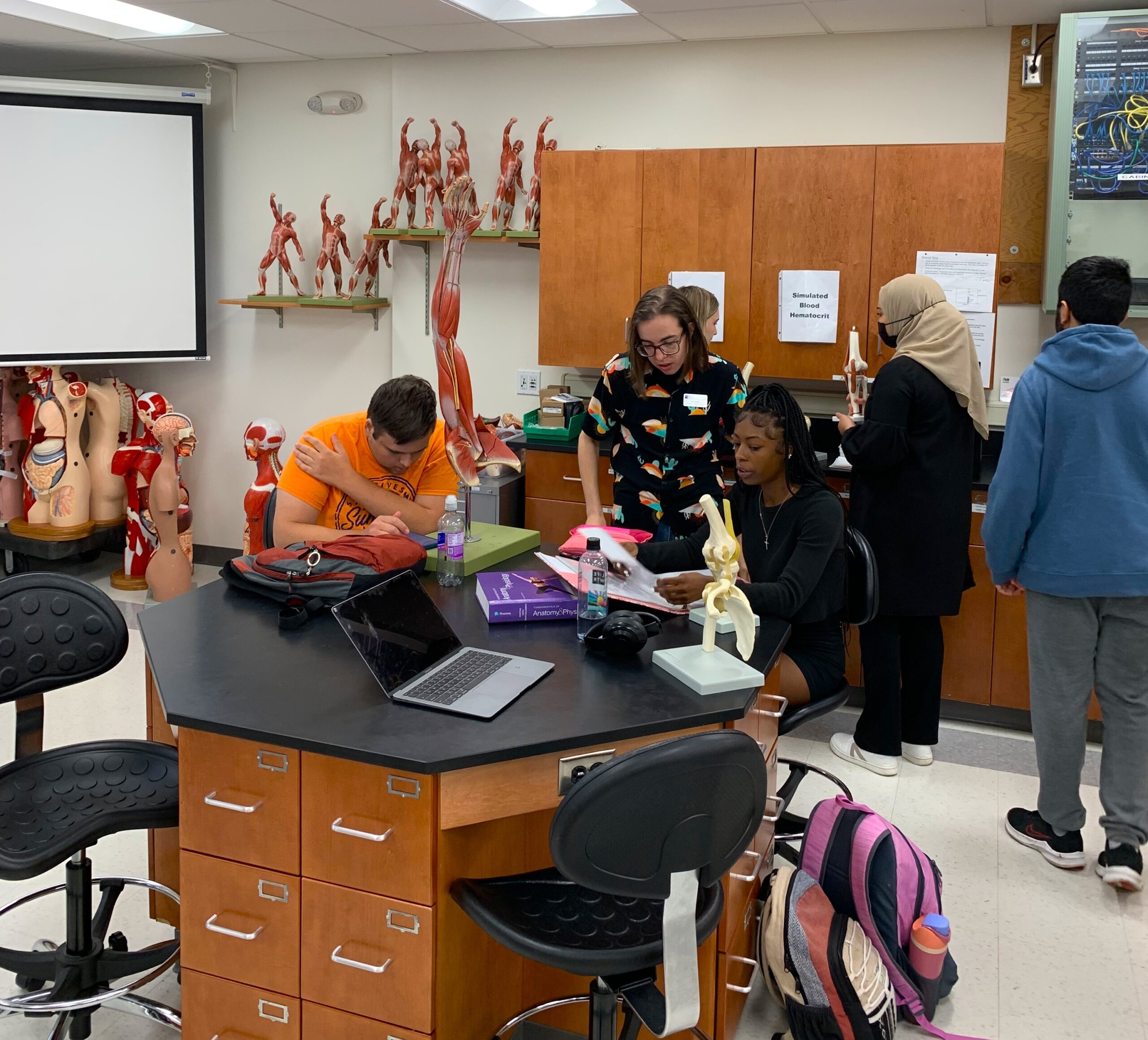Meramec classes cut
By: Kavahn Mansouri
-Editor in Chief-

STLCC-Meramec’s start of the fall 2012 semester was plagued by class cancellations. While the beginning of the spring semester was “an improvement,” according to Andrew Langrehr, Vice President of Academic Affairs, cancellations are still a lingering issue on campus. With more than 60 classes axed this semester, students and faculty members were left scrambling to fill course loads and re-enroll in classes.
“I think that it was an improvement over the fall. I think in the fall we had a situation where enrollment was lower than we anticipated. When we built the schedule it was based on having higher enrollment than what came in, so we had more to cut,” Langrehr said. “Coming into the spring we didn’t cut as many [classes]. I think there is a little over 1,400 sections, between 1,400 and 1,500 classes offered this spring.”
Langrehr added that fewer classes were cut on the cancellation day than we cut last semester.
“I think a little over 60 classes were withdrawn, between 60 and 70 withdrawn, which is an improvement over the fall. I think the department anticipated that enrollment was a little lower. I think that they managed it,” Langrehr said. “When I say we withdrew between 60 and 70 classes that wasn’t in the last week before classes. Probably only a third of those are withdrawn on that class cancellation day.”
English Department Chair David Taylor said the department took steps to minimize cancellations by anticipating an enrollment drop.
“What we did is we looked at the spring schedule and anticipated a decline in enrollment by about 10 percent and then we offered a fewer number of courses to match that enrollment,” Taylor said. “It wasn’t necessarily eliminating sections but the number of seats we offer.”
Langrehr said administration tried to act as advocates for students and faculty.
“The deans are advocates for students and faculty and they try to give that class every chance to make to the best of their ability,” Langrehr said. “Sometimes that means that you hold one and it gets cancelled late and people are scrambling.”
Departments saw the turmoil caused last year and planned ahead Langrehr said.
“I think that people saw how it went in the fall and people didn’t want to have that sort of vibe again”, Langrehr said. “I saw a lot less [cancellation] notices as I walked down the hall.”
Langrehr added that even though this semester was an improvement there is more to do.
“We can still improve; they’re some new department chairs and things. I think they are getting their bearings,” Langrehr said. “We still retained a significant number – I’d say more than 50 sections that have less than 15. They had good reasons.”
In addition to class cancellations, the college has also suffered a loss of 900 students this semester according to Langrehr.
“Enrollment is down,” Langrehr said. “We had a big increase in the last few years when the economy went bad. We anticipated coming back to some norm but we’d like it to be a little bit higher.”
Langrehr said administration is focusing on making the right moves when it comes to scheduling.
“It’s something we’re focused on; we’re trying to schedule classes where you could get a broad number of people to take them,” Langrehr said. “What’s bad is when you budget for x number of students and you get less than that.”
Planning ahead can have its negative and positive effects, according to Taylor.
“It was positive in the sense that we didn’t have as many cancellations as we did in the fall, negative in the sense that we didn’t feel as comfortable offering a variety of courses at the same times we did previously because we didn’t want them to be cancelled,” Taylor said.
This semester departments were more confident that classes that had been scheduled would make Taylor added.
“We were able to be a little more assured that the classes we offered were going to make; not all of them did of course, but we weren’t guessing at the last minute,” Taylor said. “We already knew what would be cut.”
Langrehr said the college does its best to make sure classes come to fruition.
“I’d say we do our best to plan knowing the variables but there are intangibles that you can’t always know,” Langrehr said. “That’s why I think we improved a little bit this spring from last fall because we saw what happened.”
Jan. 3 was the cancellation day when Langrehr sits down with the deans to decide what classes should make the cut.
“There were a number of classes that were really close and the dean made the case ‘lets hold this until late Friday because I think there are still students who will enroll’ and we want to give those classes ample amounts to make,” Langrehr said. “There was a number of classes we watched past Thursday.”
Langrehr said the cancellations are something that the campus needs to avoid, but cancellations can also be unavoidable.
“It’s a situation to try to avoid. We’d rather have it that these classes are secure early, students and faculty know their schedules early and that’s why it’s so important that deans and faculty chairs manage those schedules tightly,” Langrehr said. “We try not to cancel a class that is going to affect a student’s graduation to the best of our ability.”
Langrehr added that he, the deans and department chairs take students and faculty into consideration when making the cuts.
“One of our considerations when we’re sitting there is if this class is cancelled is there another place for this student to get this class. Is it the last class or one of the last classes a student would need in this program,” Langrehr said. “It’s typically something like we have a whole bunch of this course and there’s spots where these students could go, but this one doesn’t have enough enrollment at this time so it’s going to have to be the one we cancel.”
Langrehr said cancelling classes is not something the college looks forward to doing.
“The department chairs don’t like cancelling classes, the deans don’t like cancelling classes. No one likes it. So we do our best to avoid it,” Langrehr said.











